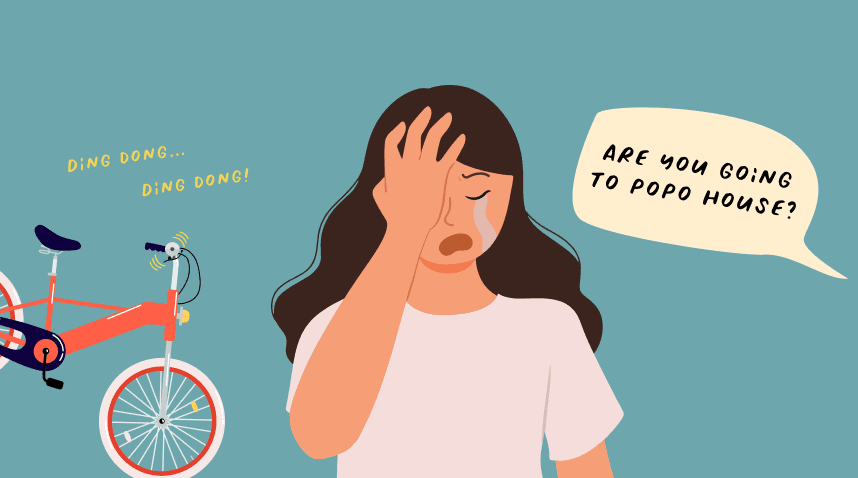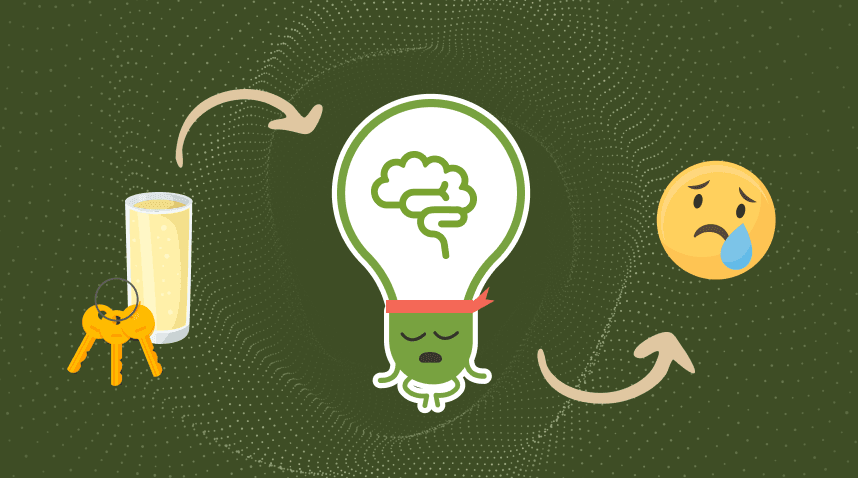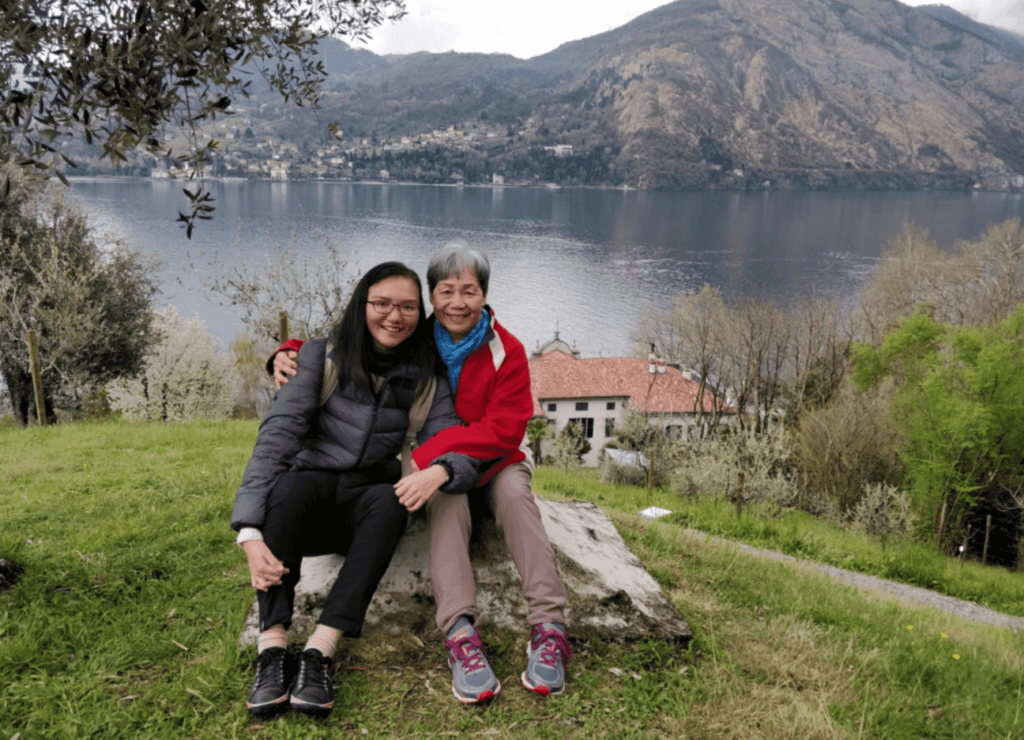TLDR: What do we do when a loved one passes on? Being in a situation where not everything can be Googled, Fang Huey reflects on her experience as she navigates her way through grief.
We are all so familiar with birth, ageing, sickness and death. However, when our loved ones pass on, we are often caught off guard and most of us do not know how to handle grief. Is grief really the price we pay for love?
The days leading up to my PoPo’s (Grandma’s) passing were undeniably tough.
From the day PoPo was warded, many scans and treatments ensued, until she could no longer be treated and was terminally discharged.
“Stage 4 cancer? I do not know how to feel about the possibility of my grandma passing on. How do I prepare myself for death? What do I expect? I do not know.” – 8 February 2021 (An extract from my diary)
It was heartbreaking to witness PoPo’s health deteriorate rapidly within such a short span of time.
The day I dreaded most arrived.
The doctor informed us to prepare for the worst while they were carrying out resuscitation efforts.
It was a familiar scene in movies but having to experience that scene myself was hard to process. A sudden realisation hit me that such a close family member would soon be gone permanently from our lives.
I reached out to my Puja (chanting) book to chant and share merits with PoPo. A few pages later, I couldn’t continue even though I was very familiar with the verses.
Everything became blurry. I felt lost, uncertain and panicky.
What should I do? I was helpless.
Everything happened so quickly and PoPo left us a month after being diagnosed.
Reflecting back on the journey, the following snippets of Dhamma recollection resonated with me.
Grief hurts

After the funeral, I snapped back to reality and took time to process my emotions. Everything felt just like a dream.
No matter how much I tried to occupy myself with schoolwork and return to ‘normalcy’, I still found myself missing PoPo, spending nights scrolling through photos of her.
A week after PoPo’s passing, a neighbour asked, “Are you going to PoPo’s house?”
She might just be striking up a casual conversation but I was jolted towards my loss and that I could no longer accompany or chat with PoPo.
Rings of a bicycle bell would remind me of PoPo coming to my house. I couldn’t help but check the gates during the initial days of grief like responding to Pavlovian conditioning.
Tears welled up in my eyes when I realised that I would never find PoPo at my gate on her small bike anymore. I felt my heart numb by pain once again.
There is so much sorrow in knowing that PoPo would not be here with us anymore. The regrets of not spending more time with her surfaced time after time; I only have memories to look back on.
I felt terrible. I turned to Google to search about losing a loved one and whether I would feel better.
There were sharings from others who have lost their loved ones, but I was unable to find one that satisfied me. On the contrary, reading the articles made me sadder and amplified my loss from resonating with what they have gone through.
Instead, I had to turn back towards the Dhamma for guidance.
Acknowledging Grief and Suffering Exists
When a loved one passes on, one goes through a period of grieving. During this time, it is easy to lose ourselves and wallow in sadness. This is one of the eight sufferings – the suffering of separating from loved ones.
We are fast to cling to what brings us happiness; we try to get rid of the unpleasant feelings and desire to return to the past when our loved one was still with us.
By acknowledging that grief exists, without making it personal and accepting suffering as “there is suffering”, instead of “I suffer”, I was able to stop being sucked into the vortex of suffering. I reflected and became more aware of my feelings and thoughts, seeing things as they are. I saw grief as suffering rather than my personal misery.
Understanding the Reason Behind Sufferings

We suffer due to attachments to our desires.
I craved PoPo’s presence, company and care for me. But I couldn’t find them back anymore. It is hard to accept the hard truth.
Her keys, flowers at her windows, soya milk, and many things that I see and hear kept reminding me of her absence. The traces she left behind were everywhere.
There are many changes I have to deal with. It felt strange; I felt a great loss and a void inside me.
I wanted PoPo back and for things to be back to normal again, but this wish can never be fulfilled and it causes my suffering.
After recognising and identifying the desire for our loved one to be back with us and for things to go back to normalcy, we can start to let go of the desire. When we no longer grasp and react, but instead lay our desires aside without passing judgement, we start recognising that desire is the cause of suffering.
Knowing that there is an End to our Suffering
Through investigation and reflection, we see that all conditions are impermanent. All that is subject to arising is subject to ceasing. I tried my best to accept PoPo’s passing; I convinced myself that it is actually good that she passed on quickly and was free from physical pain.
Our family tried to fill the gaps that PoPo left behind.
We took on chores that she had been doing all these years and appreciated her even more.
PoPo’s demise actually brought us closer. As days went by, we adjusted better and better to our new lives.
By being patient and observing grief, I realised that emotions would cease, and we need not run away from these negative feelings each time it arises. By allowing these conditions and feelings to cease naturally, we experience cessation and non-attachment; we are left with peace.
Reflections

Although it has been over half a year since PoPo passed, grief and sadness still arise at times.
With time, I learnt how to cope with these feelings betters, by understanding suffering and attachment. I also allow these feelings to exist and naturally fade away with time.
Over time, we also started realising and appreciating the good PoPo has done more and more. I remember PoPo for the generosity and kindness that she has for people around her. I aspire to be as giving and understanding as her, by incorporating these little acts of kindness into my life.
Looking back, I am glad that I turned back to the Dhamma as it gave me peace and relief, helping me to understand grief and cope with my feelings better.
Wise Steps:
- When we experience suffering, slow down to observe and witness the suffering without judgment.
- In life, we face many obstacles and unpleasant situations. Be kind and gentle towards yourself; give yourself time.


